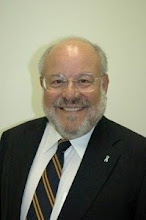The
fight over fracking has come to Long Island. Although there are no shale
deposits here to exploit for gas by hydraulic fracturing —known as fracking—the
ocean off Long Island could be the site of a terminal that opponents charged at
a recent public hearing is aimed at sending gas fracked in the U.S. to foreign
nations.
Meanwhile, the powerful
documentary Gasland II—which
concludes with documents showing the U.S. gas industry seeks to export much of
the gas fracked in the U.S.—was screened at the Hamptons International Film
Festival. It received a standing ovation from the packed audience at Guild Hall
in East Hampton. Afterwards, there was a panel discussion organized and led by
actor Alec Baldwin. It included Josh Fox, director, narrator and writer of Gasland II and the earlier documentary, Gasland, which in 2011 was awarded an
Emmy and nominated for an Academy Award. I was also on the panel.
The Suffolk Legislature
has now passed two bills on fracking: one to block water utilized in the
process from being sent to any sewage plant in Suffolk for disposal, and a
second barring “the use of hydraulic fracturing brine” on county property or
roadways.
Fracking uses massive
amounts of water sent under high pressure, along with 700 chemicals, into shale
deposits to fracture them and release the gas held in them. Some of the
chemicals are “known carcinogens,” notes the first bill. It warns of fracking wastewater
being discharged from sewage plants to then “feed into Long Island’s sole
source aquifer.”
As to “fracturing brine,”
this is also a fracking “waste product,” notes the second bill, and “some businesses that perform hydraulic
fracking would like to dispose of such brine by providing it to local
governments as a road de-icing agent for use in the winter.”
The hearing July 9 on the
proposed offshore gas terminal was held in Long Beach. A $300 million project
of Liberty Natural Gas, it would be set up 19 miles south of Jones Beach.
Although the company claims its purpose is to import gas, speakers challenged
this at the crowded hearing run by the U.S. Maritime Administration and Coast
Guard.
Catskills Citizens for
Safe Energy issued a statement declaring that the U.S. gas industry through
fracking “is now producing so much gas” that it “plans to export half of
it…overseas.” Although the terminal’s “sponsors claim that their facility will
be used to import gas,” an amendment was made last year to federal regulations that
allows for “export as well as import.” The planned terminal “off Long Island
would be perfectly situated to export fracked gas…to Europe and Asia. If that
happens, then fracking in Ohio, Pennsylvania and West Virginia will be ramped
up, and the pressure to frack New York might prove to be irresistible.” There
has been a New York State moratorium that has expired on fracking. Governor
Cuomo is considering whether to now permit it.
Gasland II puts the fracking situation
in sharp and comprehensive focus. Josh Fox began investigating fracking after his
family got a $100,000 offer to frack on land on which his father built a house in
the woods of Pennsylvania. What he uncovered and presented in his first
documentary, Gasland, was literally explosive.
People all over the U.S. whose property is used for fracking have their well water
loaded with gas. What comes out of their water faucets is shown repeatedly in Gasland bursting into flames when lit
with a match.
Gasland revealed the identity of
the toxic chemicals used in fracking. And it chronicled the serious health
impacts to people along with the environmental devastation from fracking.
I commented on the
panel July 5 at Guild Hall that when I heard Mr. Fox was doing Gasland II, I could not see how he could
follow his astounding earlier documentary—but that he broadened it “with
perfection” and it is as important and powerful as the first film.
In Gasland II, now being aired on HBO, Mr. Fox
not only widens his examination of the health and environmental disasters
caused by fracking but exposes how governments—led by the Obama administration—have
eagerly allowed fracking to happen and expand. Gasland II spotlights fracking as a major contributor to climate
change. It reveals the gas industry’s hold on governments. As U.S. Representative
Brad Miller of North Carolina says in Gasland
II about industry influence over Congress: “Try ownership, really.” It
tells how the gas industry’s lead PR firm pushing fracking was a pioneer in
claiming cigarettes are safe. It provides expert analysis about fracking being
unnecessary—how safe, clean, renewable energy can provide all the power we need.
It presents data linking fracking to earthquakes. Gasland II shows again and again peoples’ drinking water on fire.
It cites fracking as also releasing radioactive poisons held in the shale. A rape
of the planet and an attack on peoples’ health is underway. Gasland and Gasland II—must-see documentaries.


No comments:
Post a Comment